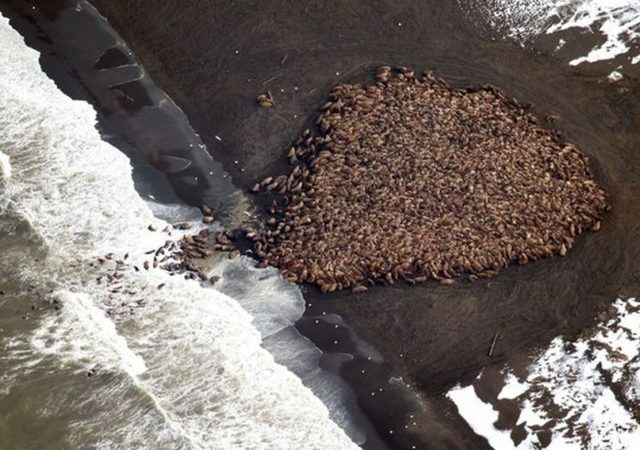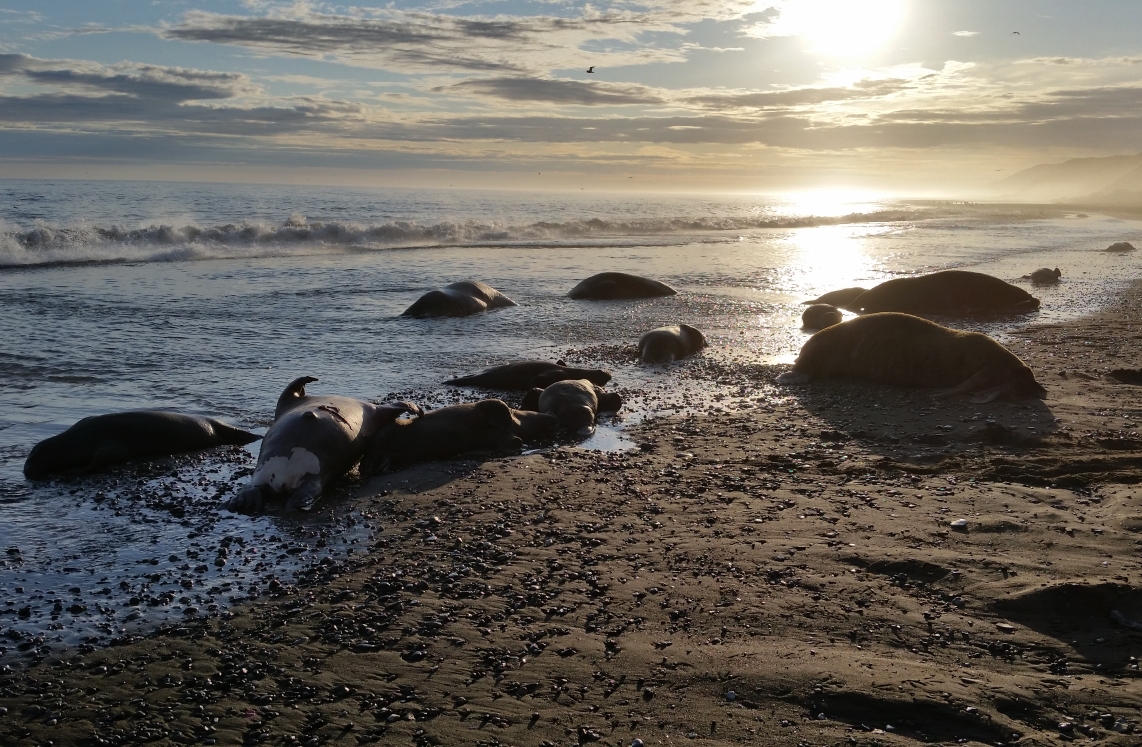 Anchorage, AK — Large groups of walruses have hauled out on the barrier island near the community of Point Lay and are expected to soon occupy the beaches near Cape Lisburne, Alaska. Walruses are likely to use these haulouts through October and occupy the near-shore waters as they move between haulouts and to and from offshore feeding areas. The Native Village of Point Lay, the local tribal government, respectfully asks those who must travel in the area by boat or plane to follow guidance developed by the U.S. Fish and Wildlife Service to avoid disturbing the animals.
Anchorage, AK — Large groups of walruses have hauled out on the barrier island near the community of Point Lay and are expected to soon occupy the beaches near Cape Lisburne, Alaska. Walruses are likely to use these haulouts through October and occupy the near-shore waters as they move between haulouts and to and from offshore feeding areas. The Native Village of Point Lay, the local tribal government, respectfully asks those who must travel in the area by boat or plane to follow guidance developed by the U.S. Fish and Wildlife Service to avoid disturbing the animals.
The formation of large coastal haulouts along the Chukchi Sea coast has been associated with the loss of sea ice habitat over shallow continental shelf waters, which are rich feeding grounds. Sea ice provides protection from human disturbance, predators, and easy access to feeding areas below. Walruses would normally rest on the sea ice in small groups and occasionally slip into the water to feed. When the animals are forced to haul out on land, they are skittish and will stampede to the water in response to unusual sights, sounds and odors. Young animals are vulnerable to being trampled in the process.
In past years, the residents of Point Lay have seen dead animals on shore after observing plane and boat activity in the area. In September 2017, residents of Point Lay observed two small aircraft disturbing walruses and reported the incident to the Service. Special agents from the Service’s Office of Law Enforcement were able to identify the aircraft and the pilots involved resulting in the pilots being issued and paying $3,000.00 citations for violating the Marine Mammal Protection Act.
[content id=”79272″]
The residents of Point Lay depend on foods collected from the land and sea and have a deep respect for and spiritual connection to the Earth and the animals they depend on. The Native Village of Point Lay has taken a lead role in stewardship of the walrus haulout in order to prevent human-caused disturbance events.
The Service has coordinated with the community to notify the Federal Aviation Administration, U.S. Coast Guard, air carriers and shipping companies to let them know that the walruses are there and to recommend they follow the Service’s guidelines if they travel in the area.
In the United States, all marine mammals are protected under the Marine Mammal Protection Act, which makes it illegal to disturb or harass them. In simple terms, it is unlawful to change the behavior of any marine mammal in its natural environment without specific authorization to do so. The Act provides some exceptions for authorized scientific research and subsistence harvest by Alaska Natives. Violations of the Act are punishable by fine up to $100,000 and one year of imprisonment. See 16 USC 1361-1407.
Find the guidelines and learn more on the U.S. Fish and Wildlife Service website.
To report incidences of harassment or injury, please contact: U.S. Fish and Wildlife Service, Office of Law Enforcement by calling 1-877-535-1795 or 1-800-858-7621.
Source: USFWS







